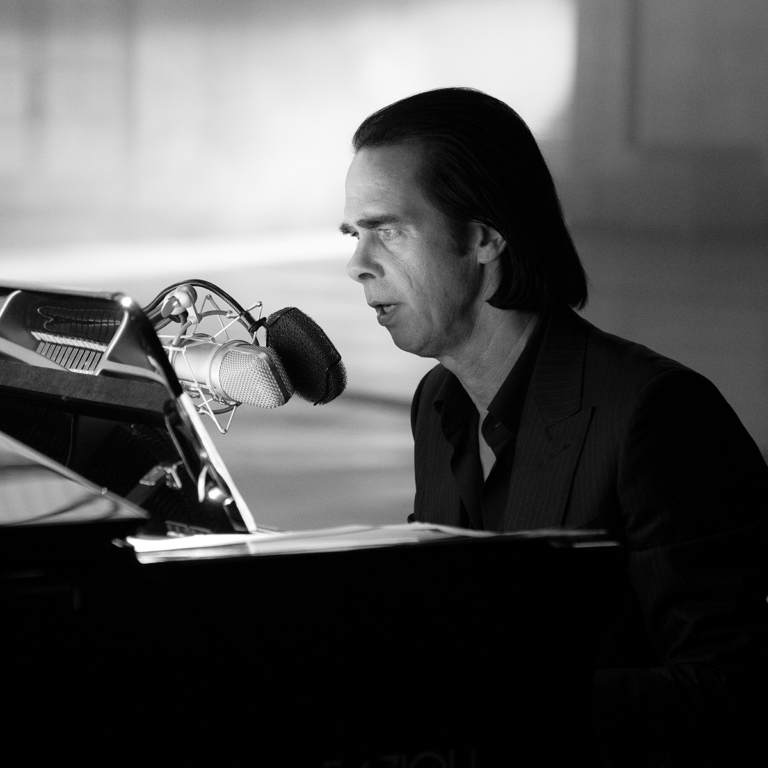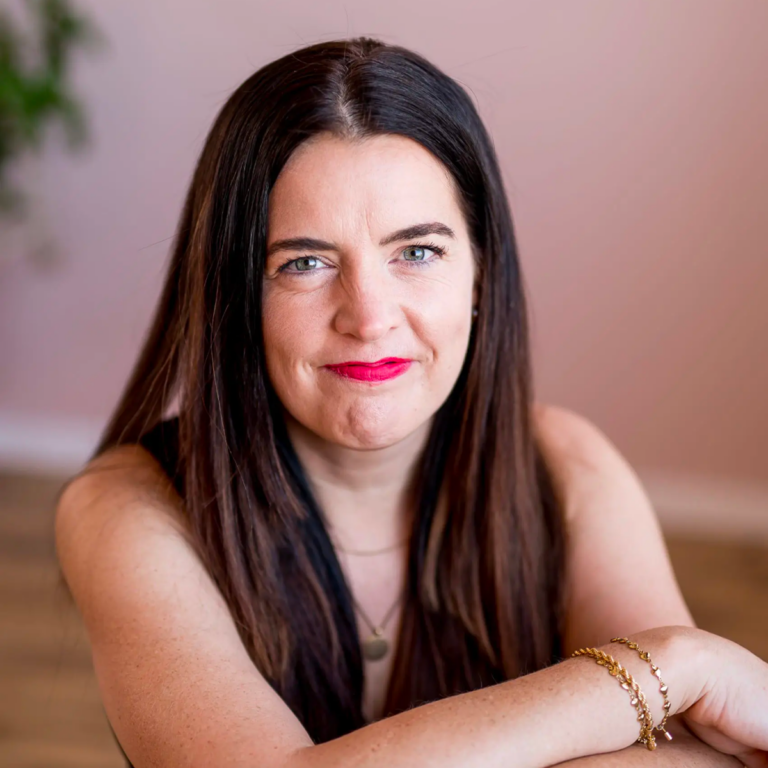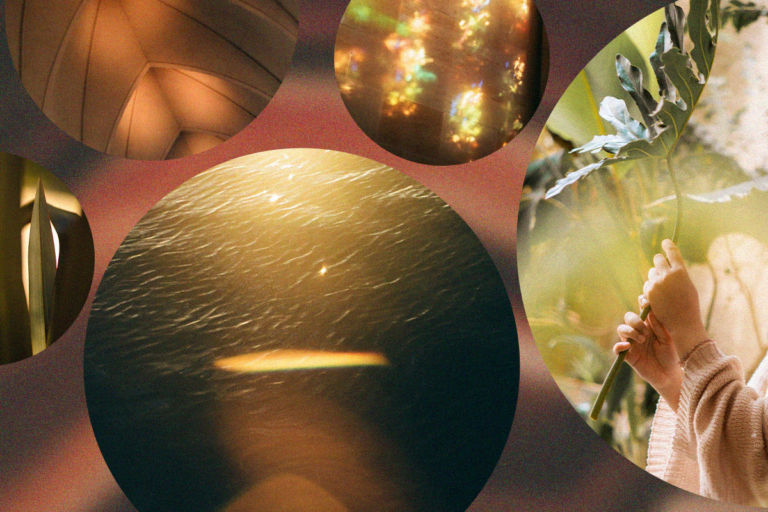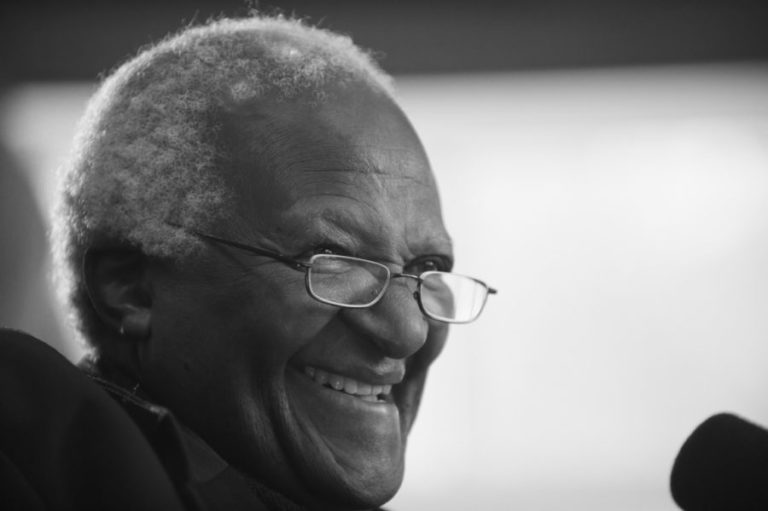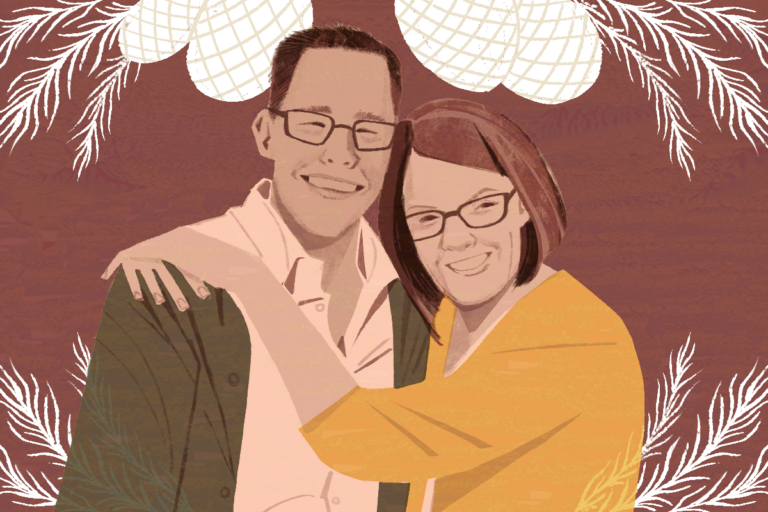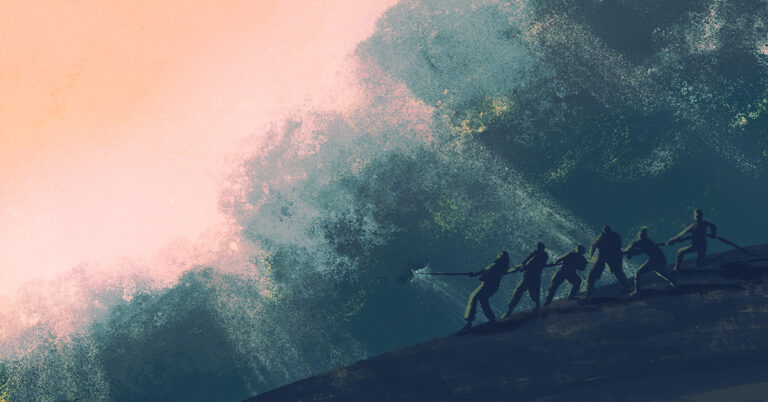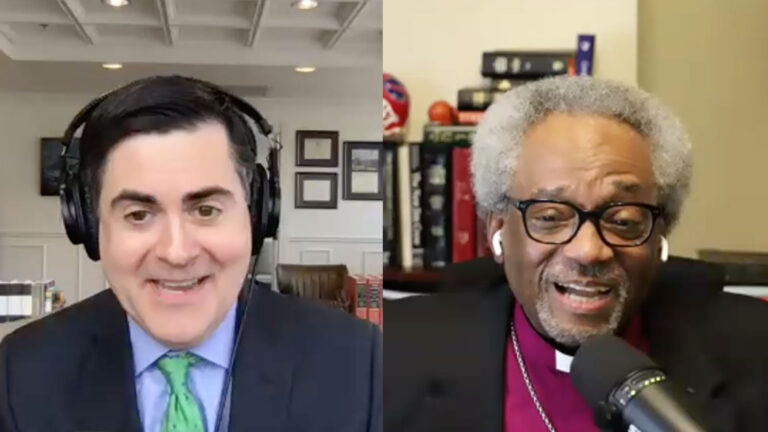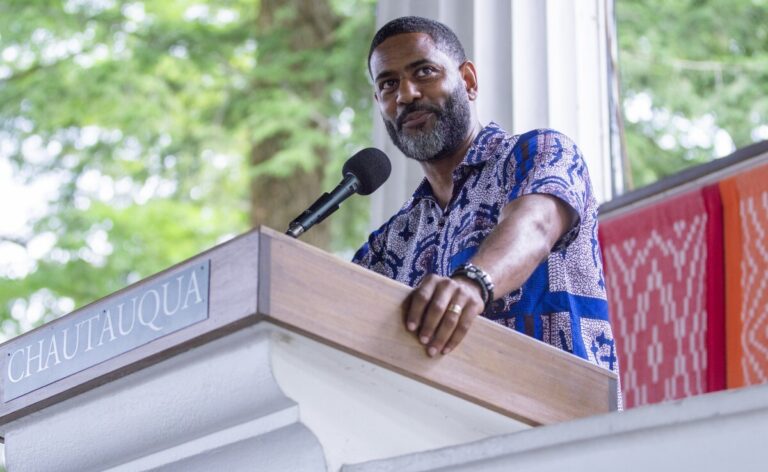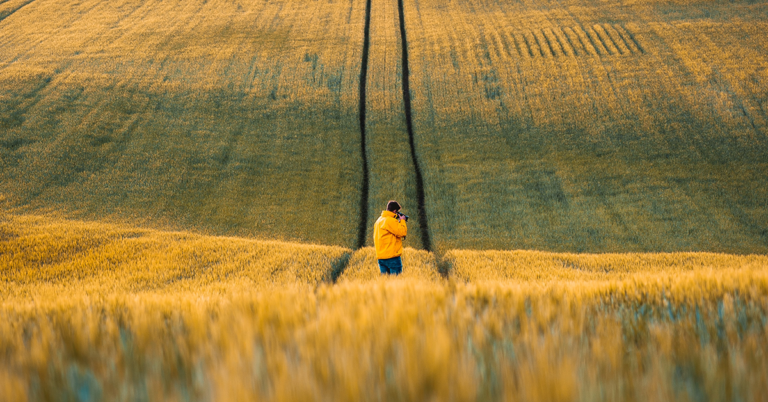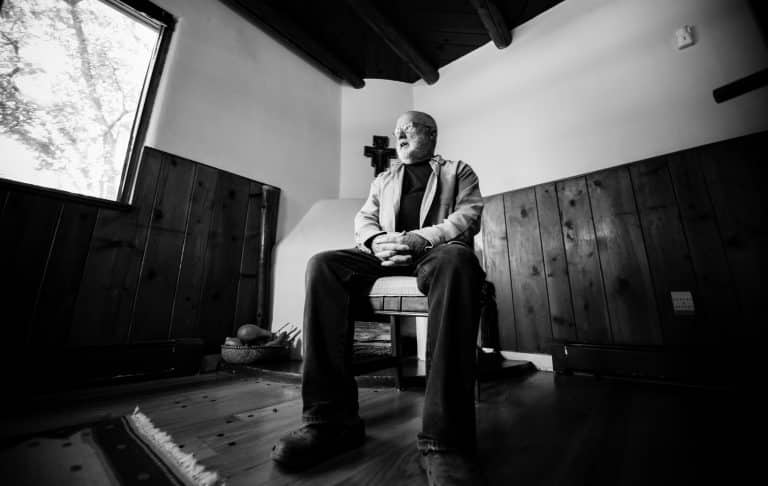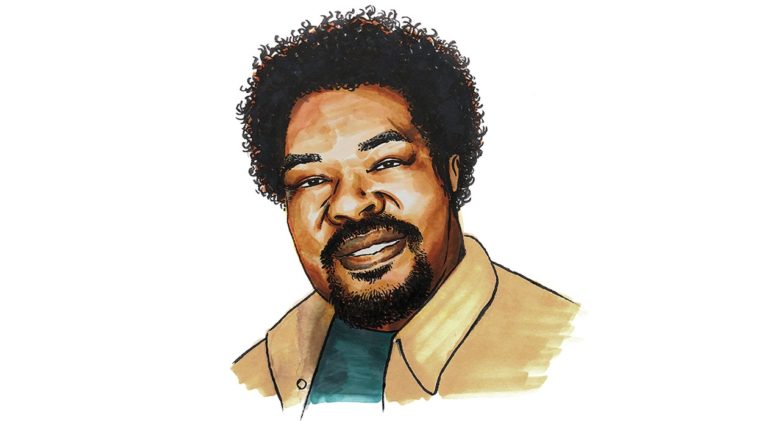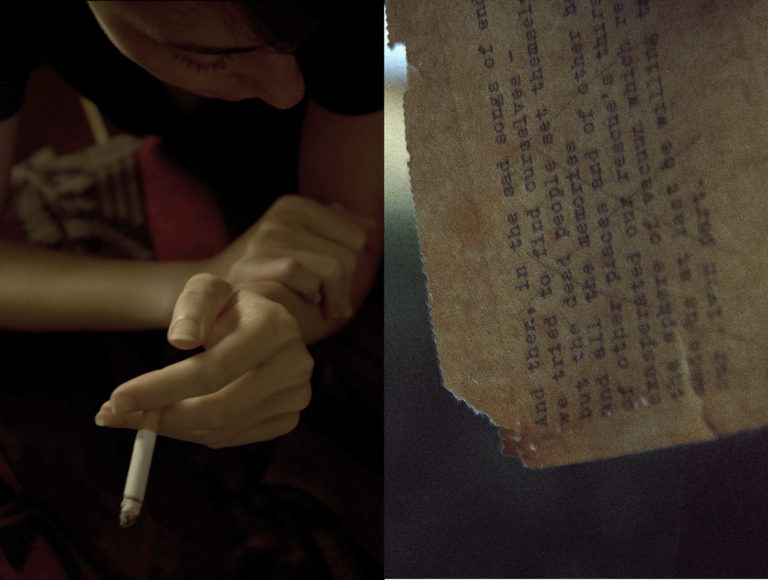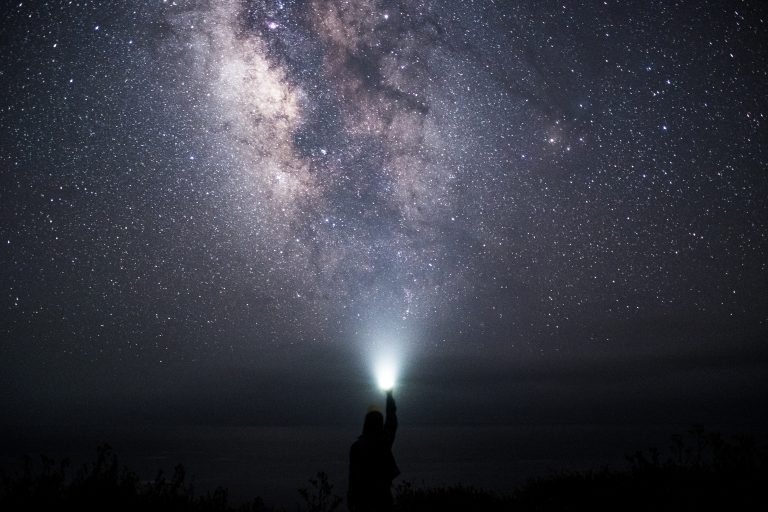The renowned actor as you’ve never heard him before. He has appeared in over 100 films, including Apocalypse Now. He’s best known on television as President Bartlet in The West Wing. But Martin Sheen, born and still legally named Ramón Estévez, has had another lesser-known life as a spiritual seeker and activist. He returned to a deep and joyful Catholic faith after a crisis at the height of his fame in mid-life. He’s been arrested over 60 times in vigils and protests. “Piety is something you do alone,” he says. “True freedom, spirituality, can only be achieved in community.”
Christianity
View
- List View
- Standard View
- Grid View
52 Results
Filters
Here are some experiences to which Nick Cave gives voice and song: the “universal condition” of yearning, and of loss; a “spirituality of rigor”; and the transcendent and moral dimensions of what music is about. This Australian musician, writer, and actor first made a name in the wild world of ’80s post-punk and later with Nick Cave and the Bad Seeds. He also underwent public struggles with addiction and rehab.
Since the accidental death of his 15-year-old son Arthur in 2015, and a few years later, the death of his eldest child Jethro, he has entered yet another transfigured era, co-created an exquisite book called Faith, Hope and Carnage, and become a frank and eloquent interlocutor on grief. As a human and a songwriter, Nick Cave is an embodiment of a life examined and evolved. He sat with Krista in the On Being studio in Minneapolis, and the gorgeous conversation that followed is woven in this episode with his gorgeous music.
We love the theologian Kate Bowler’s allergy to every platitude and her wisdom and wit about the strange and messy fullness of what it means to be in a human body. She’s best known for her 2018 book Everything Happens for a Reason (And Other Lies I’ve Loved) — a poetic and powerful reflection on learning at age 35 that she had Stage IV colon cancer.
From a reset on how to think about aging, to the new reality in our time of living with cancer as a chronic illness, to the telling of truths to our young, this beautiful conversation is full of the vividly whole humanity that Kate Bowler singularly embodies.
(Also, as you’ll hear, if she hadn’t become a theologian, she might have been a stand-up comedian.)
Krista and Kate spoke as part of the 2023 Aspen Ideas Festival.
“I like it much better than ‘religious’ or ‘spiritual’ — to be a seeker after the sacred or the holy, which ends up for me being the really real.”
– Rev. Barbara Brown Taylor
From Krista, about this week’s show:
It’s fascinating to trace the arc of spiritual searching and religious belonging in my lifetime. The Episcopal priest and public theologian Barbara Brown Taylor was one of the people I started learning about when I left diplomacy to study theology in the early 1990s. At that time, she was leading a small church in Georgia. And she preached the most extraordinary sermons, and turned them into books read far and wide. Then in 2006, she wrote Leaving Church — about her decision to leave her life of congregational ministry, finding other ways to stay, as she’s written, “alive and alert to the holy communion of the human condition, which takes place on more altars than anyone can count.”
She’s written other books since, with titles like An Altar in the World, Learning to Walk in the Dark, and Holy Envy: Finding God in the Faith of Others. Being in the presence of Barbara Brown Taylor’s wonderfully wise and meandering mind and spirit, after all these years of knowing her voice in the world, is a true joy. I might even use a religious word — it feels like a “blessing.” And this is not a conversation about the decline of church or about more and more people being “spiritual but not religious.” We both agree that this often-repeated phrase is not an adequate way of seeing the human hunger for holiness. This is as alive as it has ever been in our time — even if it is shape-shifting in ways my Southern Baptist and Barbara’s Catholic and Methodist forebears could never have imagined.
“Prayers are tools not for doing or getting, but for being and becoming.” These are words of the late legendary biblical interpreter and teacher Eugene Peterson. At the back of the church he pastored for nearly three decades, you’d be likely to find well-worn copies of books by Wallace Stegner or Denise Levertov. Frustrated with the unimaginative way he found his congregants treating their Bibles, he translated the whole thing himself and that translation has sold millions of copies around the world. Eugene Peterson’s literary biblical imagination formed generations of pastors, teachers, and readers. His down-to-earth faith hinged on a love of metaphor and a commitment to the Bible’s poetry as what keeps it alive to the world.
The remarkable Archbishop Emeritus of Cape Town and Nobel Laureate died in the closing days of 2021. He helped galvanize South Africa’s improbably peaceful transition from apartheid to democracy. He was a leader in the religious drama that transfigured South African Christianity. And he continued to engage conflict well into his retirement, in his own country and in the global Anglican communion. Krista explored all of these things with him in this warm, soaring 2010 conversation — and how Desmond Tutu’s understanding of God and humanity unfolded through the history he helped to shape.
December 23, 2021
Jeff Chu
A Life of Holy Curiosity
In Friendship with Rachel Held Evans
Here we are in a religiously-infused season — and in a world in which more and more of us experience ourselves to be religious nomads, misfits, even refugees. This deep reality of our life together is often simplified in analyses of the decline of traditional religious identity, of the rise of the spiritual-but-not-religious. Yet there is abundantly, alongside all of that, a rising theological and liturgical searching, a passionate calling towards service that echoes the heart of the great traditions. This is nowhere more true than around the boundaries of Christianity. And no person has given more winsome voice to it than Rachel Held Evans, who died suddenly at the age of 37 in 2019. Now her dear friend, journalist and preacher Jeff Chu, has midwifed her unfinished last book, Wholehearted Faith, into the world. He’s Krista’s wonderful conversation partner this hour — articulating a spacious understanding of God and grief, searching and belonging, for this changed world Rachel did not live to see, but speaks to still.
Katharine Hayhoe is one of the most esteemed atmospheric scientists in the world. She’s made her mark by connecting dots between climate systems and weather patterns and the lived experience of human beings in their neighborhoods and communities. She’s also an ambassador, if you will, between the science of climate change and the world of evangelical Christian faith and practice, which she also inhabits. To delve into that with her is to learn a great deal that refreshingly complicates the picture of what is possible and what is already happening, even across what feel like cultural fault lines. If you want to speak and walk differently on this frontier, this is a conversation for you.
December 10, 2020
Bishop Michael Curry & Dr. Russell Moore
Spiritual Bridge People
We’re in a tender spiritual moment, widely feeling our need for re-grounding both alone and together. By way of the Almighty force of Zoom, Krista engages a forward-looking conversation with two religious thinkers and spiritual leaders from very different places on the U.S. Christian and cultural spectrum: Episcopal Bishop Michael Curry and Russell Moore of the Southern Baptist Convention. Through their friendship as much as their words, they model what they preach. The Washington National Cathedral and the National Institute for Civil Discourse brought us all together.
October 15, 2020
Rev. Otis Moss III
The Sound of the Genuine: Traversing 2020 with ‘the Mystic of the Movement’ Howard Thurman
An hour to sit with, and be filled. Two voices — one from the last century, one from ours — who inspire inward contemplation as an essential part of meeting the challenges in the world. Howard Thurman’s book Jesus and the Disinherited, it was said, was carried by Martin Luther King Jr. alongside the Bible and the U.S. Constitution. Thurman is remembered as a philosopher and theologian, a moral anchor, a contemplative, a prophet, and pastor to the civil rights leaders. Rev. Otis Moss III, himself the son of one of those leaders, is a bridge to Thurman’s resonance in the present day, and between the Black freedom movements then and now.
April 16, 2020
Wendell Berry and Ellen Davis
The Art of Being Creatures
In this intimate conversation between Krista and one of her beloved teachers, we ponder the world and our place in it, through sacred text, with fresh eyes. We’re accompanied by the meditative and prophetic poetry of Wendell Berry, read for us from his home in Kentucky: “Stay away from anything / that obscures the place it is in. / There are no unsacred places; / there are only sacred places / and desecrated places. / Accept what comes of silence.”
The folk-rock duo Amy Ray and Emily Saliers have been making music for over 25 years. They’re known for their social activism onstage and off, but long before they became the Indigo Girls, they were singing in church choirs. They see music as a continuum of human existence, intertwined with spiritual life in a way that can’t be pinned down.
Men of all ages say Richard Rohr has given them a new way into spiritual depth and religious thought through his writing and retreats. This conversation with the Franciscan spiritual teacher delves into the expansive scope of his ideas: from male formation and what he calls “father hunger” to why contemplation is as magnetic to people now, including millennials, as it’s ever been.
Community organizers Rami Nashashibi and Lucas Johnson have much to teach us about using love — the most reliable muscle of human transformation — as a practical public good. Nashashibi is the founder of the Inner-City Muslim Action Network, a force for social healing on Chicago’s South Side. Johnson is the newly-named executive director of The On Being Project’s Civil Conversations Project. In a world of division, they say despair is not an option — and that the work of social healing requires us to get “proximate to pain.”
Walter Brueggemann is one of the world’s great teachers about the prophets who both anchor the Hebrew Bible and have transcended it across history. He translates their imagination from the chaos of ancient times to our own. He somehow also embodies this tradition’s fearless truth-telling together with fierce hope — and how it conveys ideas with disarming language. “The task is reframing,” he says, “so that we can re-experience the social realities that are right in front of us, from a different angle.”
An exuberant experience of conversation and singing. There are nearly 5,000 spirituals in existence. Their organizing concept is not the melody of Europe, but the rhythm of Africa. They were composed by slaves, bards whose names we will never know, and yet gave rise to gospel, jazz, blues, and hip-hop. Joe Carter lived and breathed the universal appeal and hidden stories, meanings, and hope in what were originally called “sorrow songs.” This was one of our first weekly shows, and it’s still one of our most beloved.
“A dysfunctional family is any family with more than one person in it.” Mary Karr has a captivating ability to give voice to what is funny in life’s most heartbreaking moments. She is beloved for her salty memoirs in which she traces her harrowing childhood in southeast Texas — with a mother who once tried to kill her with a butcher’s knife and her own adult struggles with alcoholism and breakdown. Mary Karr embodies this wryness and wildness in her lesser-known spiritual practice as a devout Catholic — an unexpected move she made in mid-life.
“It’s very likely that the universe is really a kind of a question, rather than the answer to anything,” says philosopher technologist Kevin Kelly. He was the founding editor of WIRED and is an original thinker on shaping the character and spiritual meaning of technology. He says our role as good askers of questions will remain the most important contribution of our species in a coming world of AI.
The poet Christian Wiman is giving voice to the hunger and challenge of being religious now. He had a charismatic Texas Christian upbringing, and was later agnostic. He became actively religious again as he found love in his mid 30s, and was diagnosed with cancer. He’s written, “How does one remember God, reach for God, realize God in the midst of one’s life if one is constantly being overwhelmed by that life?”
The Pause
Join our constellation of listening and living.
The Pause is a monthly Saturday morning companion to all things On Being, with heads-up on new episodes, special offerings, event invitations, recommendations, and reflections from Krista all year round.
Search results for “”
View
- List View
- Standard View
- Grid View
Filters
